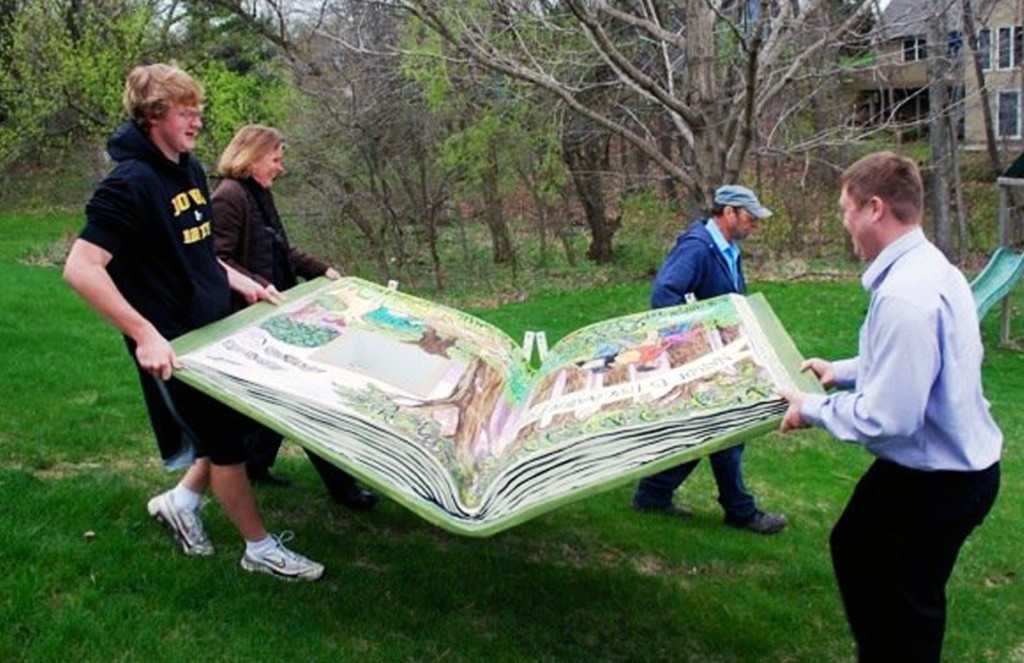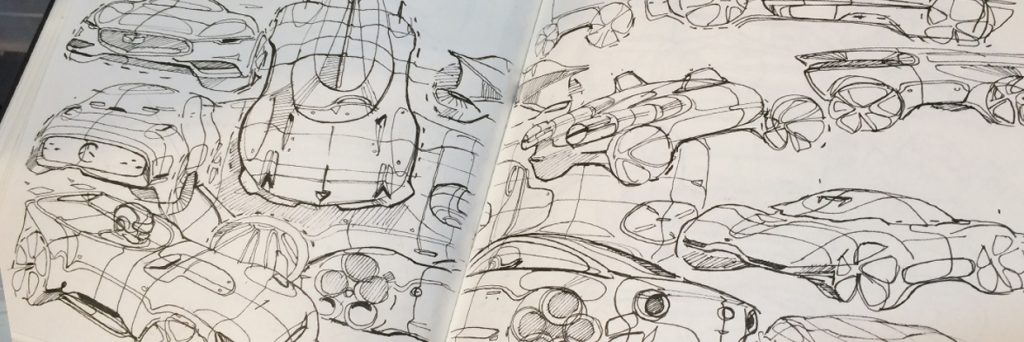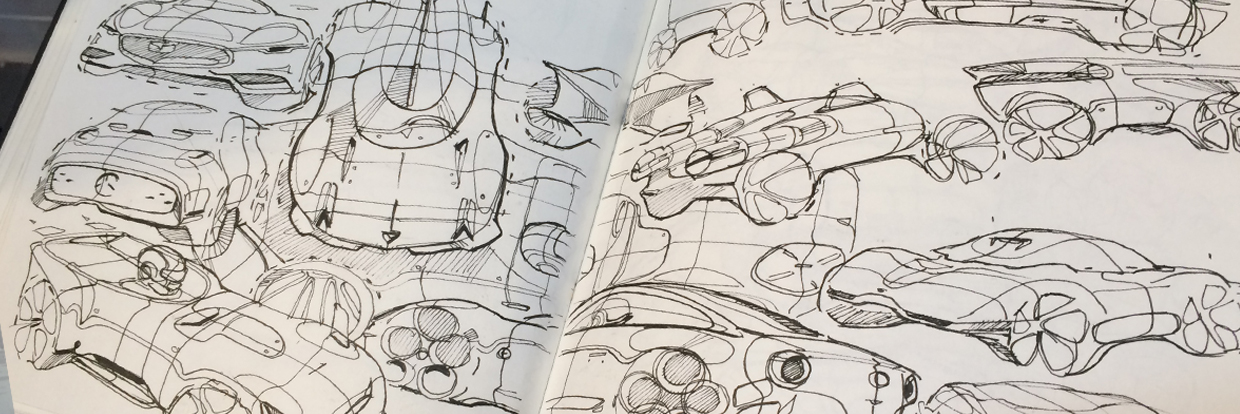Here is some car designer portfolio advice, especially for what a graduate designer’s portfolio should contain –
I often get reminded, that design is all about opinion, so here’s mine on the dark and scary world of job applications. So you can take some of it on board, all of it on board or none at all and prove me wrong.
It’s the age old and favourite past time of anyone seeking a career in the automotive industry, the application phase. From designers to alias modellers, we are all aware that our industry doesn’t tend to favour the conventional CV and cover letter with a careful placement of buzz words/phrases like ‘I can manage a team of people and take on individual responsibilities’. Although these are areas we all have to consider, at the end of the day, the dreaded ‘P’ word is what we are all thinking right now….your Portfolio. So let’s start with my do’s and don’ts of the most important aspect of an application.
PORTFOLIOS

KNOW WHO YOU ARE APPLYING TO
If all you have is speed boats and lawn mowers in your portfolio then I would say it is quite rare that an automotive studio will consider you. Research the studio / brand and try your best to think of what they might look for in a candidate.
“You are only as good as your worst piece of work”. This cannot be said enough, and I wish someone had told me this at university too! As a designer especially, your portfolio will mainly be put under the eyes of other designers, we love looking at them, we want to be excited, we want to see that sketch or render that inspires us and then we will want you! So let‘s throw away lifeless package drawings of translucent, colour filled boxes that say “batteries” or “motors”, and the 97.5 percentile Dutch males that you’ve squashed into your vehicle, we can save all this for when we actually have to face reality, when designing a real car for manufacture (and you may not even have to worry about this).
Keep your projects to a minimum, we see 56 page portfolios with about 10 projects in. These are too big to keep/capture our attention for the period of time it would take to digest that amount of information / wade through it. We are designers ourselves and therefore have to design things and unfortunately you can’t spend all day every day looking at portfolios!
DISCARDING OLDER PROJECTS
Now this is the hard bit, discarding older projects as your skills have improved …. nearly impossible to do sometimes as you probably hold emotions for each project as if they were your own child. They aren’t your children and they don’t have emotions, cut them out and be brutal. Do it, cut it down, get through it. Even if you are left with 3 projects, this will the make us think that you can do everything of this level.
From my own experience as a Coventry graduate, cut out the following 1. Clay head project 2. Any ergonomics based project with lights that reflect your mood 3. An alias model or render which is then repeated in different colours to show colour choices up to 5-6 times (padding out your portfolio?).
VARIATIONS OF DESIGN WORK
The tricky creative taboo topic, difficult to answer without causing a whole world of design debates and potential Ted talks animosity establishing what design is and how we should approach it. Try to mix it up, don’t just have 3 projects of space ships and fantastic speed painting art work, show that side of you by all means it’s great to see, however try and include some good old fashioned automotive design, displaying an understanding of surfacing, brand interpretation and proportion over 4 conventional wheels.

Your portfolio should be an extension of yourself, it should be presented in a way that you want it to be. Your style should be natural rather than something that is forced. Always be honest with the way that you work, whether you are all about hand sketching or a Photoshop wizard, show how you work as we all have different ways we do things.
DESIGN COMPETITIONS
A great way to stay sharp, get your name out there and they really keep you on your toes. Polestar, the Michelin design challenge and interior motives to name but a few, the briefs are usually fun, and if it is not fun then you need to twist their brief to do so! No one wants to design something boring in their spare time. These usually have no engineering requirement, package constraints or a need to convince university tutors to what you are doing, go forth and have fun!

CV WRITING
Like my car designer portfolio advice – Keep it simple, if you don’t have that much to show it’s ok, we have all been in your shoes at some point and we don’t expect to see years of experience from a student. Whatever you do, please don’t write that you have been ‘freelancing’, unless you can back it up with examples to prove you haven’t just living at home with your parents with a part time job. Better to say you have been working on your portfolio and design competitions in an evening, but again you have to back it up with the evidence!
SELF RATING CHARTS
My last thought on this topic, which I could probably continue to preach about for another hour whilst I annoy my colleagues by seemingly moaning endlessly is this …. the self-rating skill charts! Now I’m not sure what the universities have been preaching to the students of late, but here’s my number one pointless thing to put in your portfolio if you are applying to be a designer or alias modeller. Grading yourself out of 10, maybe out of 5 stars even and stating how good you are at alias, photoshop, design or sketching ……

It won’t be right, it will probably annoy someone in the studio that you have sent it to. The idea of your portfolio or data you send is that we will be working this out, and deciding the level we see you as and if we feel you are right for said particular studio position. Whatever you do, please don’t include ‘football’ as a skill set, to which you then score yourself higher on this than any other design skills. Makes me think you should be a professional footballer instead! (NOTE: Only exception is if you are applying to Drive where your karting lap times are important)
I hope this car designer portfolio advice helps you in all your applications;
Have an opinion
Get a photo of you applying a tape to a clay model or sketching – it shows your personality without a passport type image.
Be protective over your pen
Talk about sketches with emotions and feelings
Never be truly happy with your work
Keep portfolios to no bigger than 5mb (if possible)
Drive will be happy to look at your cv / portfolio and advise how to improve it and give yourself the best opportunity of securing your dream job.
Coventry University Automotive Design Course

